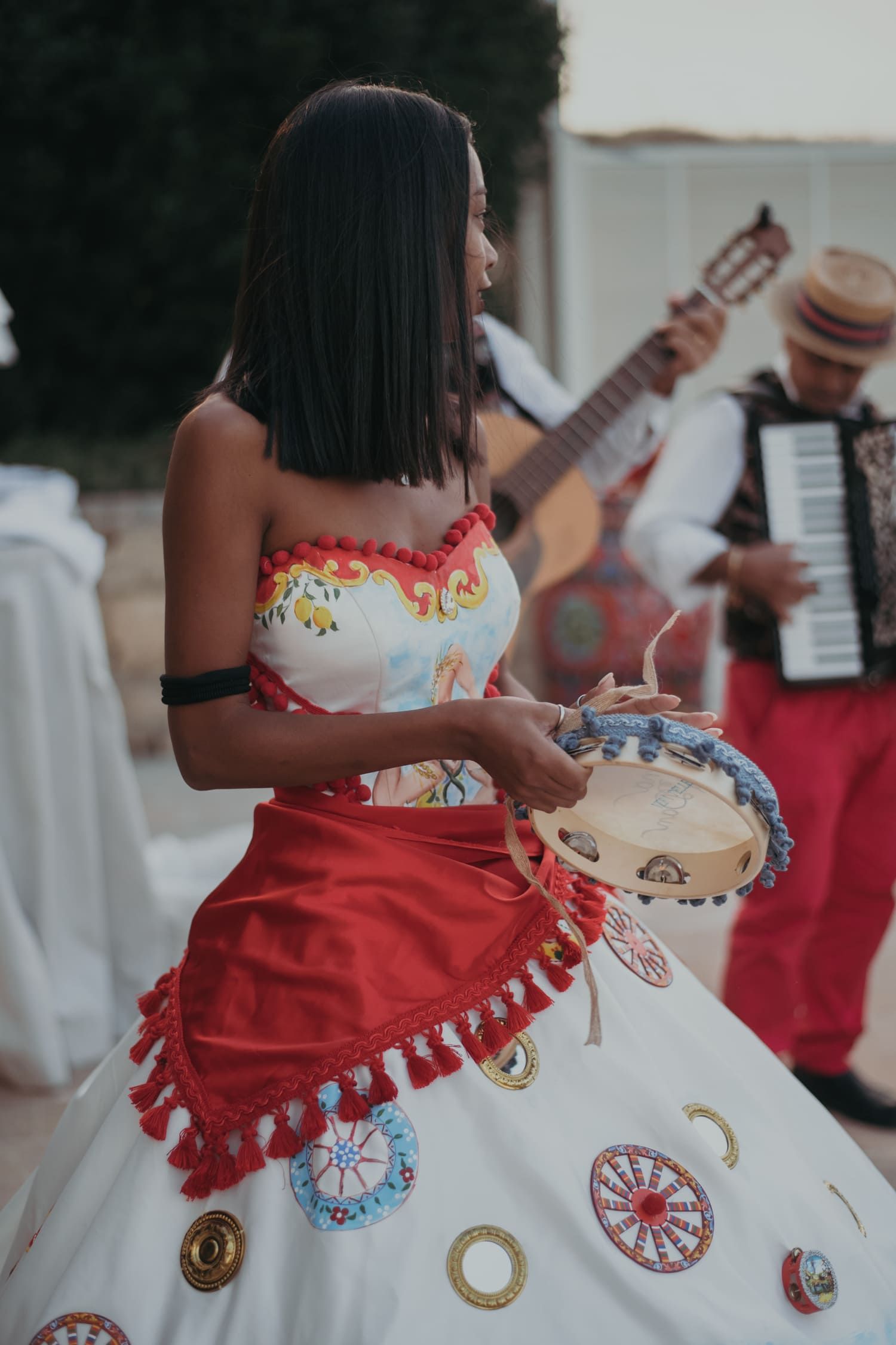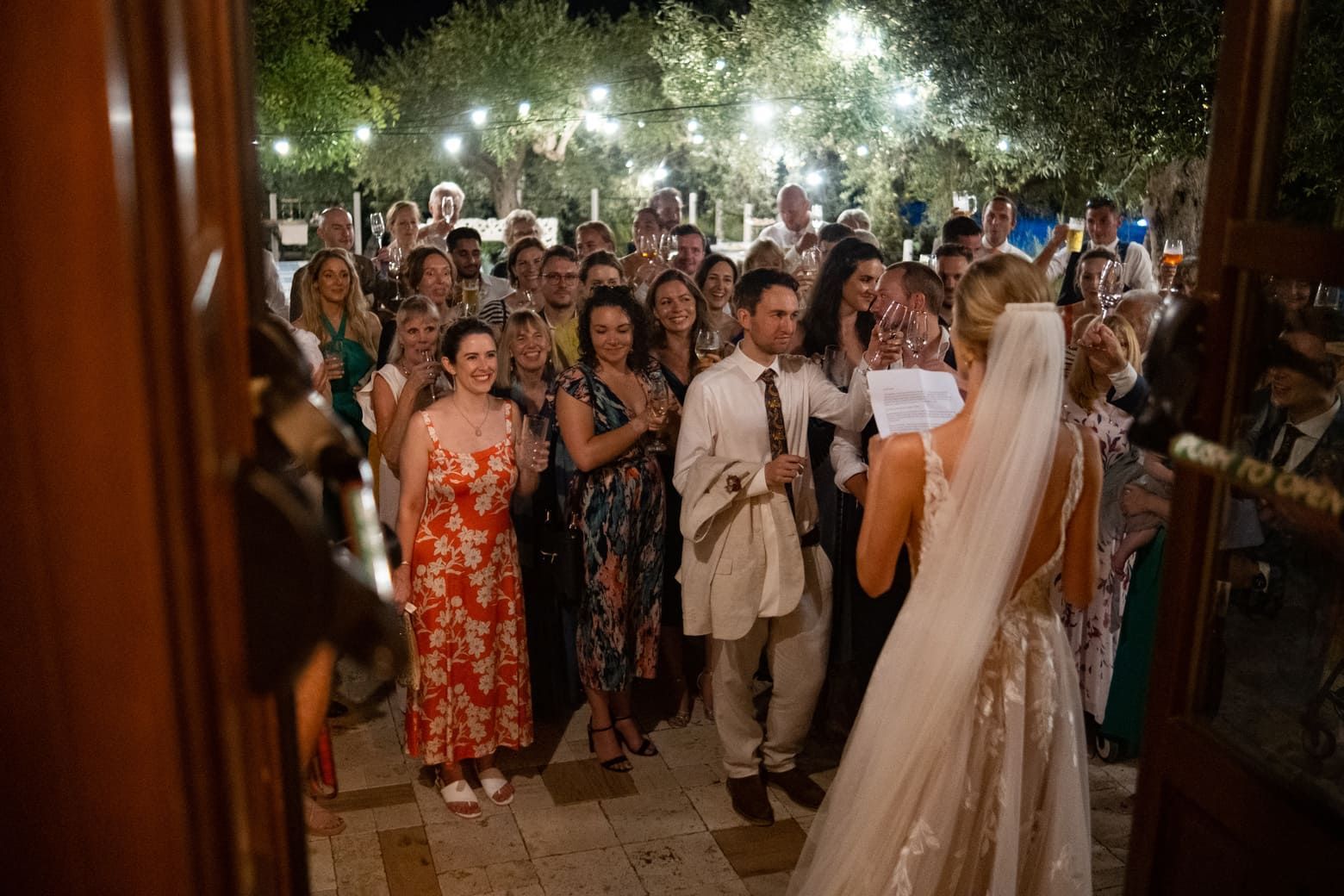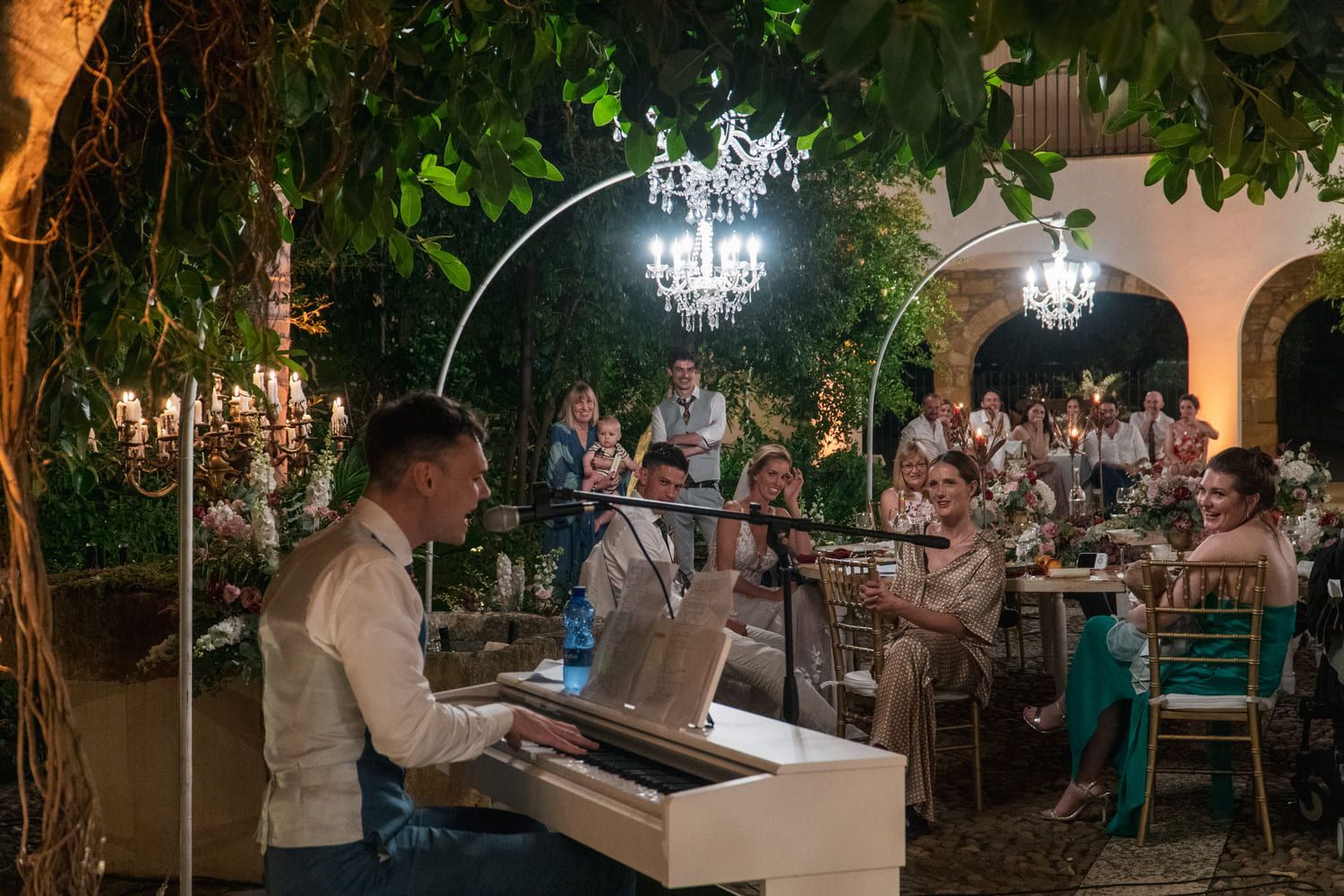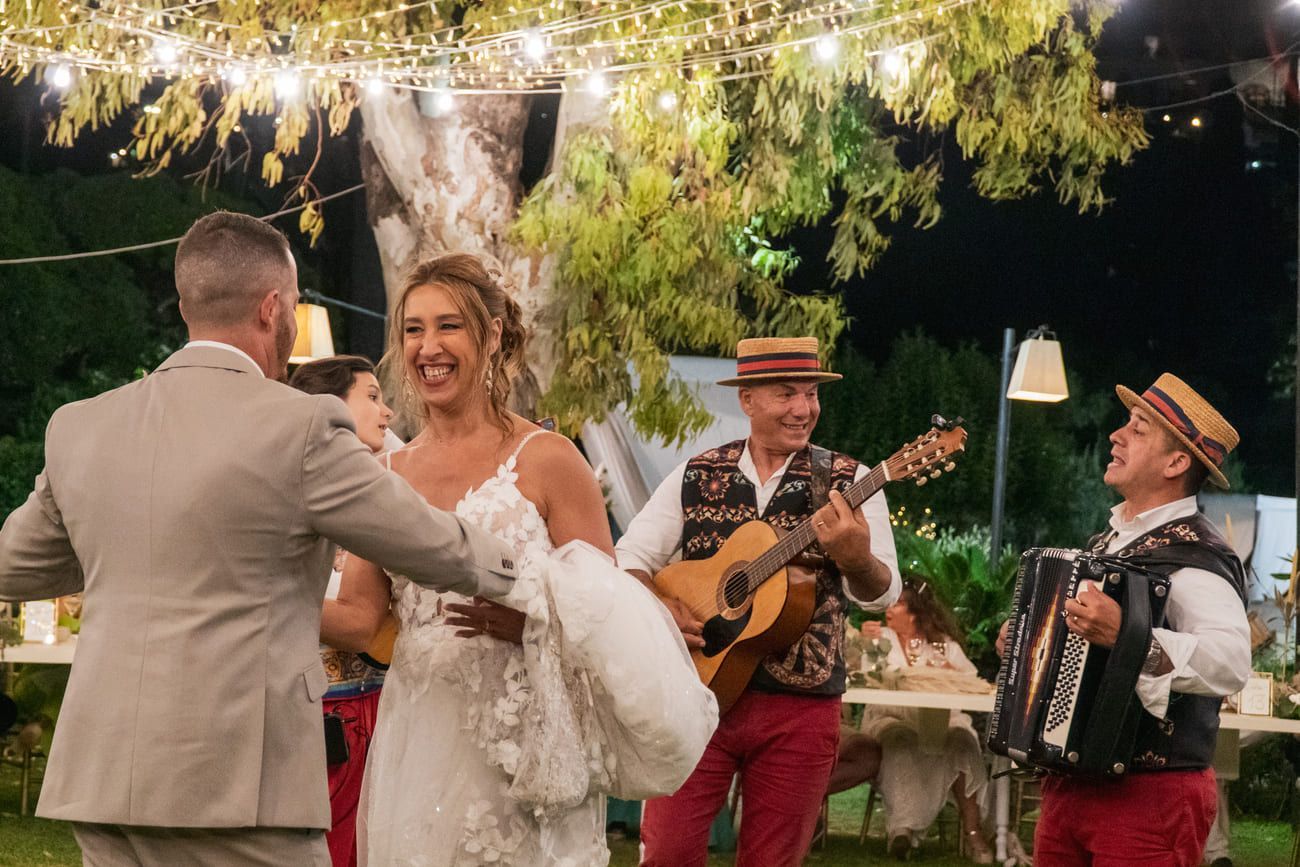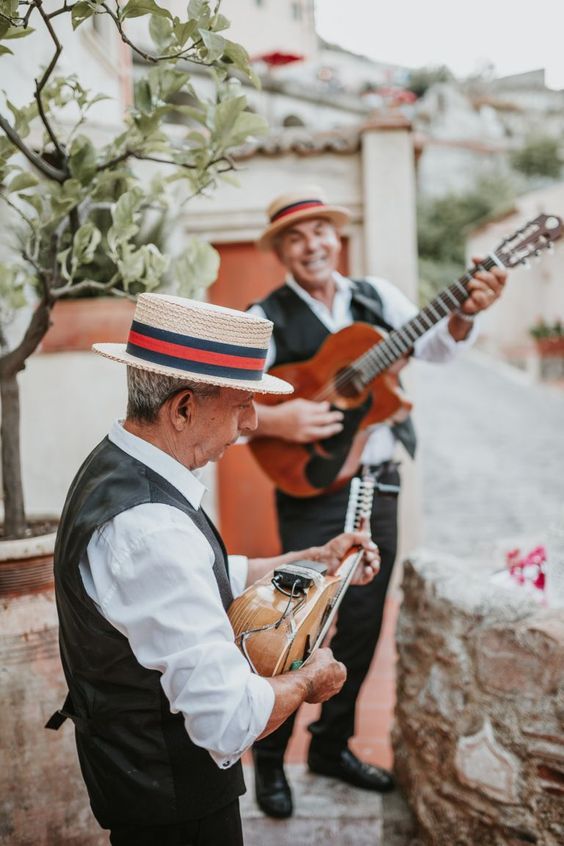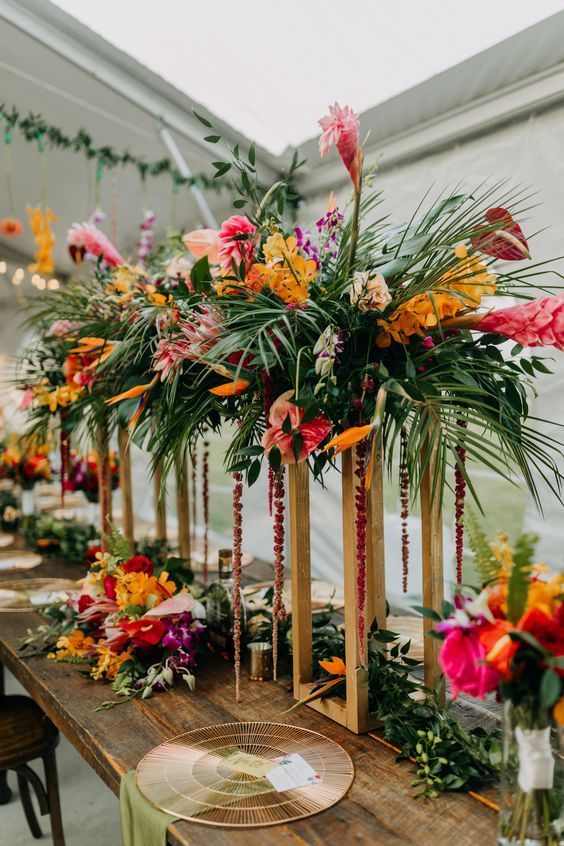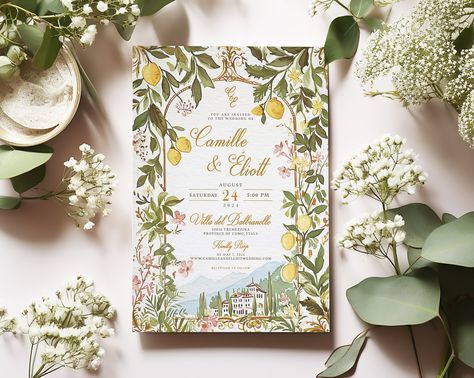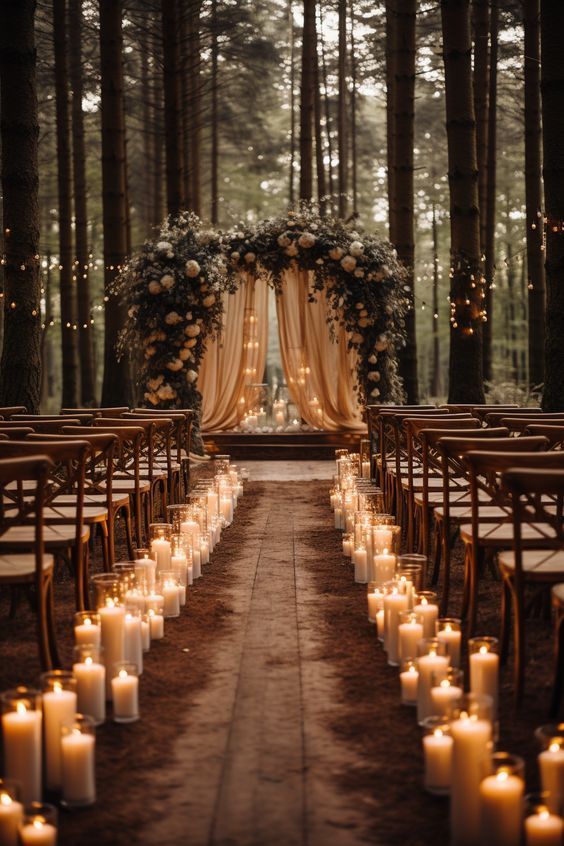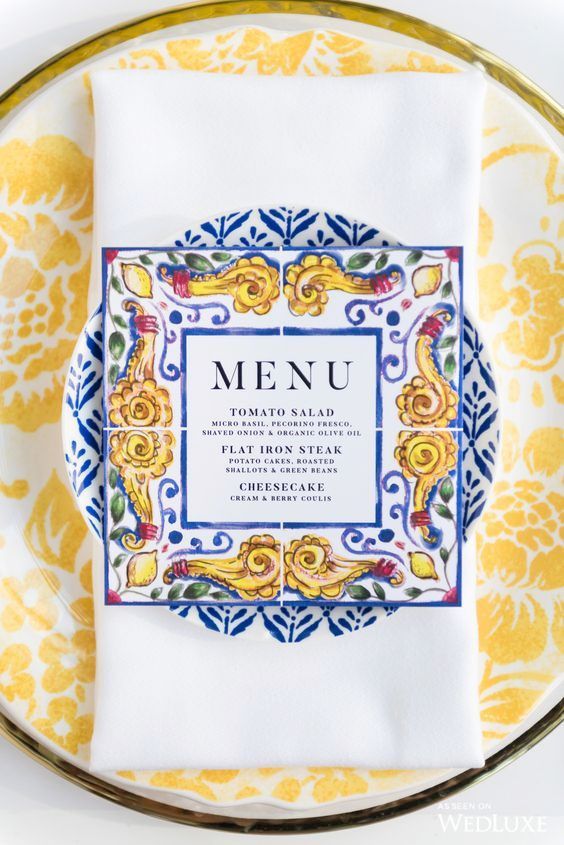Ancient Rituals: Your Guide to Italian Wedding Traditions
Ancient Rituals: Your Guide to Italian Wedding Traditions
If the idea of marrying in Italy is dancing through your mind, why not weave in some enchanting Italian wedding traditions?
Not just to wow your Italian guests but to truly sync with the vibrant local energy that pulses through the Italian air!
Imagine the local's look of surprise when you do a serenata the day before your wedding day! Infuse your celebration with customs that have romanced the Italian soil for centuries, bridging the charm of the old with the thrill of your new beginning.
Ready to learn some of the oldest Italian Wedding traditions?
1. Serenade
Serenades are very much alive in Italy, especially in the southern regions. On the night before the wedding, the groom, along with his friends (and possibly a band), positions himself beneath the bride's window and begins singing love songs to his future bride.
If you're not confident in your singing abilities, don't worry; the band and your friends will be there to support you. You continue singing until the bride appears at the window, and only then do you dedicate your best song to her! Afterwards, it's time for the band to take center stage, allowing you to enjoy the moment with your soon-to-be bride. At this point, tables laden with delicious food and drinks seemingly appear by magic. The band keeps the tunes flowing, and everyone joins in, dancing under the stars and celebrating the love that unites these two families.
2. Do not get married under Venus or Mars!
The proverb "Neither under Venus nor Mars do we marry, depart, or start any art" taps into the age-old belief in astrology and the influence of planetary positions on human affairs. According to this saying, Tuesdays (ruled by Mars, the god of war) and Fridays (ruled by Venus, the goddess of love) are considered inauspicious for initiating significant life events like weddings. This is due to Mars symbolizing conflict and Venus representing love, both potent energies that could disrupt the harmony desired on a wedding day.
Traditionally, weekends, particularly Saturdays and Sundays, are the most popular choices for weddings, blending convenience with cultural and religious practices. However, a midweek wedding date could offer unique advantages, such as venue availability and cost savings. If you're leaning towards a weekday to say your "I dos," this proverb advises steering clear of Mars' and Venus' days to sidestep the folklore of ill omens.
3. The bride is late? That's actually planned...
In some countries around the world, a bride's late arrival might be seen as rude, but not in Italy! Not only is it a popular saying, but this habit is also affirmed in etiquette rules: the bride's delay, as long as it doesn't exceed 15 minutes, allows guests and the groom to prepare more calmly for the big event.
If you ever find yourself attending an Italian wedding, don't be surprised to find that everyone, from guests to the groom, might also embrace a leisurely pace in arriving. This laid-back approach to punctuality can infuse the day with a sense of calm and anticipation, contributing to the overall joy and celebration of the occasion.
4. Let's make some noise!
Did you know that in the Middle Ages, it was a tradition to bang pots and make a racket after the ceremony to ward off evil spirits? Well, this custom still exists today, but pots have been replaced by tin cans tied to the newlyweds' bumper or by the more modern sound of car horns accompanying the drive to the wedding venue.
This fascinating historical practice reflects the belief that loud noises could deter evil spirits, ensuring the newlyweds' path forward was safeguarded and blessed.
5. Break some plates as a welcome gesture...
On the wedding day, it's crucial that the bride's bouquet is delivered by the mother-in-law, and that the bride leaves her home arm in arm with her father. For good luck, it's customary to throw petals and break a plate at the bride's feet.
The delivery of the bride's bouquet by the mother-in-law is a meaningful gesture, symbolizing the welcoming of the bride into her new family. As the bride steps out of her home, arm in arm with her father, this act represents the family's blessing and support for her new journey. The breaking of a plate at the bride's feet, accompanied by the throwing of petals, is not just for good luck; it's a symbolic wish for abundance and fertility in the couple's life together.
As for the way the bride and groom should walk down the aisle, tradition varies, but a common practice sees the bride escorted by her father to meet the groom at the altar. This poignant moment symbolizes the transition from her family of origin to forming a new family with her groom.
5. What really goes into a perfect bridal outfit... (it's not what you think!)
Did you know about the symbolic items the bride should wear on her wedding?
This tradition has become popular beyond the borders of Italy and it goes like: for good fortune, the bride should wear something
blue, symbolising purity; something
old, to represent her past life; something
new, signalling the future ahead; something
gifted, denoting love from those dear to her; and something
borrowed, to signify lasting connections with family and close friends.
5. The tie goes to the highest bidder...
In some Italian wedding traditions, the groom also has his moment in the spotlight with rituals meant to bring good fortune. One particularly unique, albeit less universally embraced tradition, involves a playful auction of the groom's tie. This isn't just any auction; it's a spirited affair where pieces of the groom's ceremonial tie are cut and then auctioned off to the wedding guests. The idea behind this quirky custom is that the larger the monetary contribution from a guest, the bigger the piece of tie they receive as a token.
This ritual is seen as a way to wish the groom good luck, while also adding an element of fun and interaction among the guests. Moreover, it symbolizes the guests' support for the newlyweds' future together, with their contributions seen as a form of blessing for prosperity and happiness. Though it might raise eyebrows for those unfamiliar with the practice, it's a testament to the rich tapestry of customs that make Italian weddings so vibrant and memorable.
5. Finally stepping into your bedroom? Not so soon...
After the wedding festivities, traditional practices accompany the couple not just to their home but to their bedroom too! Tradition has it that to avoid bad luck from tripping, the husband should carry his bride over the threshold, a ritual rooted in Ancient Rome aimed at ensuring the gods favor her entrance into the new home.
In terms of preparing the marital bed, there's a variety of customs: it's often made by unmarried women, though some traditions suggest placing a baby on the bed to bless the couple with fertility, or having it prepared by married women who decorate it with sweets, confetti, and coins.
These wedding traditions, steeped in history, were originally designed as protections against evil spirits. While some are quaint, others might seem out of step with modern etiquette, and quite a few are considered by many to be outdated. But for those who place importance on upholding these customs, a bit of patience is necessary. Our compilation of Italian wedding traditions is just a glimpse into the myriad of customs celebrated on this momentous day.
And you, how do you imagine your Wedding in Sicily?
If you have any questions, you can have a free wedding consultation to explore the possibility of getting married in Sicily. It's a no-committment, no-salesy conversation, where you can share your idea and I'll share with you a plan on how to make it happen.
Leave your details below and we will be in touch to organise the call!


